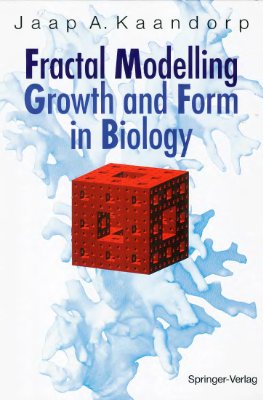Springer, 1994. - 220 Pages.
In this book, methods from fractal geometry are applied to model growth forms, taking as a case study a type of growth process which can be found among various taxonomic classes such as sponges and corals. These models can be used, for example, to understand the amazing variety of forms to be found in a coral reef and to simulate their growth with 2D and 3D geometrical objects. Models which mimic the growth of forms and the environmental influence on the growth process are also useful for ecologists, as a combination of simulation models together with the actual growth forms can be used to detect the effects of slow changes in the environment.
In this book, methods from fractal geometry are applied to model growth forms, taking as a case study a type of growth process which can be found among various taxonomic classes such as sponges and corals. These models can be used, for example, to understand the amazing variety of forms to be found in a coral reef and to simulate their growth with 2D and 3D geometrical objects. Models which mimic the growth of forms and the environmental influence on the growth process are also useful for ecologists, as a combination of simulation models together with the actual growth forms can be used to detect the effects of slow changes in the environment.

